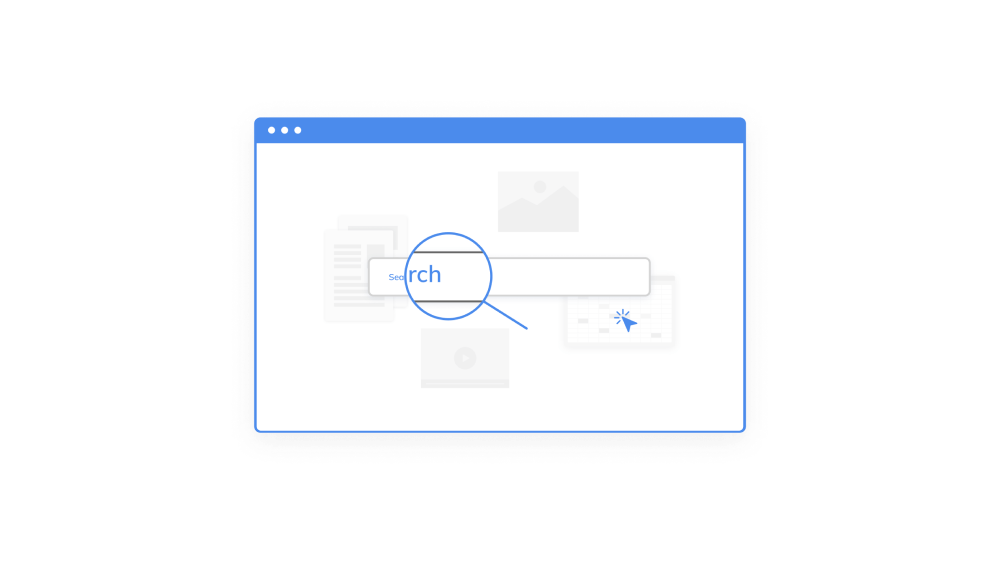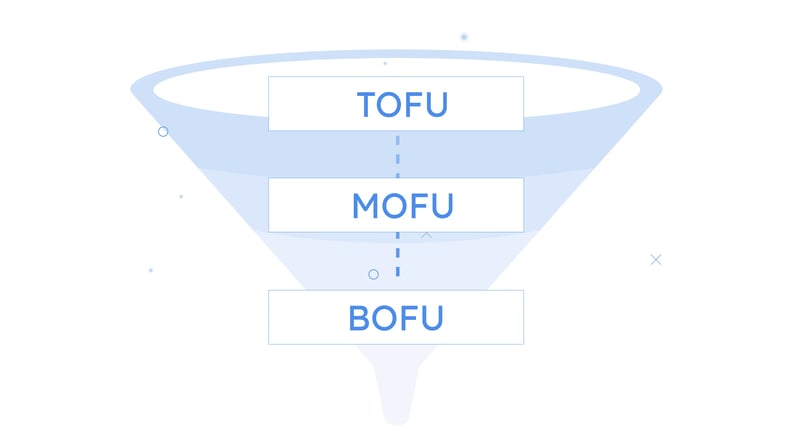Growing back stronger: takeaways from the Spring 2024 SaaSOpen Conference
At SaaSOpen, we saw a shift towards more sustainable growth practices that prioritize return on investment over the previously "growth at all costs"...

Your potential customers are searching. Right now, they’re Googling solutions to their problems, comparing products, and weighing their options. The question is: Are they finding you, or your competitors?
You need to ensure you’re getting your product in front of the right audience at the right time. Imagine showing up consistently in search results when your target customers are looking for:
That’s the power of SEO for SaaS. It ensures your brand becomes their go-to resource, building trust, credibility, and, most importantly, pipeline.
In this blog, we’ll break down why SEO matters for SaaS, how it evolves across growth stages, and the pillars that drive success. Let’s get started.
In SaaS, visibility is a growth driver. But with countless solutions vying for attention, how do you make sure your product gets noticed? The answer lies in search engine optimization (SEO).
For SaaS businesses, SEO is more about relevance than simple traffic. It’s the strategy that puts your product in front of the right people at the right time—people actively searching for solutions you provide. Why does this matter so much?
Unlike other marketing strategies, SEO doesn’t push your product onto potential customers. Instead, it aligns with how they naturally search for solutions, whether they’re Googling “best project management tools for startups” or “how to integrate CRM with ERP.”
As SaaS companies progress through various growth stages, the role and importance of SEO change and evolve. From the early days of product validation to achieving market dominance, SEO remains a critical lever for visibility, credibility, and long-term scalability.
Here’s how its importance shifts across different growth stages:
In the earliest stages, when a SaaS company is refining its Minimum Viable Product (MVP) and validating its market, SEO lays the groundwork for visibility. A strong digital presence can help early adopters discover the product, even in its nascent form.
During this stage, SEO often revolves around understanding the target audience’s search behavior.
For instance, keyword research might reveal how potential customers articulate their problems or search for solutions. Basic optimization of landing pages and initial content ensures that the company starts building its online credibility, even as the product itself takes shape.
Achieving Product-Market Fit (PMF) is a critical moment that signals that a SaaS product resonates with its audience. At this stage, SEO becomes a tool for building awareness and earning trust within the market.
The importance of SEO lies in helping the company capture demand through content that addresses specific pain points, educates the audience, and highlights the product’s value.
Ranking for informational and mid-funnel keywords—such as “how to solve [problem]” or “top software for [use case]”—can support lead generation and nurture prospects as they evaluate their options.
The T2D3 phase, characterized by rapid scaling, highlights SEO’s role as a driver of exponential growth. At this stage, SEO becomes a strategic priority. It aligns closely with aggressive marketing and sales goals.
SEO’s importance here lies in its ability to scale visibility and capture a larger share of the market.
Companies might prioritize ranking for high-volume, competitive keywords and optimizing the customer journey to drive conversions. SEO efforts often expand to include technical optimizations, scalable content strategies, and enhanced targeting for high-intent search terms that drive measurable ROI.
For SaaS companies exceeding $100M ARR, SEO takes on a new level of importance: maintaining dominance. At this stage, the focus often shifts from growth to sustaining visibility, protecting market share, and reinforcing brand authority.
SEO helps ensure the company stays at the forefront of its industry by maintaining top rankings, optimizing existing content to stay relevant, and expanding into new markets or verticals. It also plays a role in safeguarding the company’s reputation by ensuring positive brand-related search results dominate the SERPs.
While the specific focus of SEO changes across growth stages, its importance remains constant. By aligning SEO efforts with the priorities of each growth phase, companies can leverage it as a critical driver of sustainable success.
While SEO's importance shifts across growth stages, its success hinges on a few key principles that remain constant. Let’s take a closer look at the pillars that drive impactful SaaS SEO strategies.
SEO goes beyond ranking for a handful of keywords. SaaS SEO is more about building a cohesive strategy that drives high-quality traffic, supports lead generation, and aligns with long-term business objectives.
At the heart of this strategy are 5 key pillars that form the foundation of effective SaaS SEO:
A strong SaaS SEO strategy begins with a deep understanding of your audience's search intent. This means identifying the keywords that align with different stages of the buyer’s journey: awareness, consideration, and decision.
You need to ensure you target:
Mapping these keywords to your content strategy ensures that you’re meeting your audience where they are and guiding them seamlessly through the funnel.
Content is the backbone of SaaS SEO. To rank well and resonate with your audience, your content must be high-quality, relevant, and actionable.
Make sure you write:
Consistency in publishing and optimizing content for both users and search engines is crucial. Value-driven content not only ranks well but also builds authority and drives meaningful engagement.
Technical SEO ensures that your website is optimized for search engine crawlers and provides a seamless experience for users.
This includes:
A technically sound website forms the bedrock of any successful SEO strategy, ensuring that all other efforts are fully leveraged.
Backlinks remain a critical factor in search engine rankings. For SaaS companies, building a robust backlink profile establishes authority and drives referral traffic.
This includes:
Quality matters more than quantity in SaaS SEO. Focus on earning links from reputable sites that are relevant to your industry.
SEO is not a one-time effort—it’s an ongoing process of measurement, learning, and adaptation. SaaS companies must regularly evaluate the performance of their SEO strategies through key metrics like:
Regularly updating content, optimizing underperforming pages, and refining your approach ensure long-term success.
By focusing on these key pillars, SaaS companies can create a well-rounded SEO strategy that improves rankings and drives real business outcomes. Each pillar works in harmony to ensure your website becomes a powerful tool for growth and customer acquisition.
👉 Read out newest blog SaaS SEO 101: A Guide for SaaS Founders and CEOs to Dominate Search in 2025 here.
Think about how decision-makers and their teams discover software. They’re not just browsing the internet, they’re driven by a need, a pain point they’re desperate to solve. That pain is their common thread, regardless of where they are in the buyer's journey. Your job? Show them, through strategic content and SEO, how your solution can be the answer they’re looking for.
For your B2B SaaS company, your website is the first impression, the resource hub, and the decision-maker all rolled into one. It’s where prospects evaluate your product, decide if it fits their needs, and ultimately choose whether to take the next step toward becoming a customer.
But here’s the kicker: not all prospects are at the same stage of their journey. This is where an intentional keyword strategy comes into play, one that aligns with the funnel and meets prospects exactly where they are.
Your prospects' needs evolve at different stages of their journey, and so should your keywords and content.
The magic lies in tailoring your content and keywords to match the intent of each funnel stage. A strong SaaS keyword strategy ensures your brand is the trusted resource they encounter at every step of their journey—from awareness to consideration to decision-making.

For SaaS businesses, SEO should be more than a simple marketing tactic. SEO has the potential to be a growth engine that aligns seamlessly with your company’s objectives while delivering measurable, long-term value.
Unlike paid ads, where results end when the budget stops, SEO delivers compounding value. Each high-quality blog post, landing page, or resource you publish adds to your digital footprint, driving traffic, leads, and conversions for months—or even years—after launch.
Product-led growth (PLG) strategies rely heavily on self-guided users discovering your solution.
SEO helps you own critical search terms related to onboarding, feature adoption, and problem-solving. It ensures prospects and customers find the information they need at every step of their journey.
SEO fosters alignment between sales and marketing by targeting the keywords and questions that resonate most with your Ideal Customer Profile (ICP). The insights gained through SEO efforts inform sales pitches and content strategies, creating a cohesive experience for prospects.
Markets shift, ad costs rise, and algorithms evolve. A strong SEO foundation ensures your business remains resilient amid these changes.
Organic rankings provide visibility that isn’t tied to a fluctuating budget, giving your brand a lasting presence in your industry.
When your SaaS company consistently ranks at the top of search results, it signals credibility and expertise. Over time, this visibility positions your brand as a leader in the market, attracting high-value customers and making your company a trusted name.
Embarking on your SaaS SEO journey can feel overwhelming, but it doesn’t have to be. Building a strong foundation starts with understanding your Ideal Customer Profile (ICP), uncovering their search behavior, and crafting a strategy that aligns with your growth stage.
From technical SEO to content strategy, and even link-building tactics, there are countless moving parts to consider. How do you prioritize efforts that deliver the biggest impact?
We’ve already tackled this in detail in our guide to SaaS SEO strategies. Ready to take the next step? Read our new blog How to Build an Effective SaaS SEO Strategy for Your Tech Company in 2025 here and explore actionable strategies to get your SEO engine running.
Your SaaS business deserves more than just visibility—it needs a strategy that drives real results.
At Kalungi, we specialize in creating tailored SaaS SEO strategies that attract the right audience, convert traffic into leads, and align seamlessly with your growth goals.
Contact Kalungi today and let our team of experts help you build a strong, scalable SEO strategy that positions your SaaS company for long-term success.
Silvia was a fractional CMO for early-stage B2B SaaS companies. She focuses on driving and tracking growth through a unified, multi-channel approach. She is now the Head of Marketing at a SaaS company.
At SaaSOpen, we saw a shift towards more sustainable growth practices that prioritize return on investment over the previously "growth at all costs"...
Discover Kalungi’s B2B SaaS marketing plan template—a framework designed for SaaS CMOs to build scalable marketing engines & achieve predictable...
Learn the key metrics that you need to keep a close eye on to determine the overall health and growth of your SaaS startup.
Be the first to know about new B2B SaaS Marketing insights to build or refine your marketing function with the tools and knowledge of today’s industry.